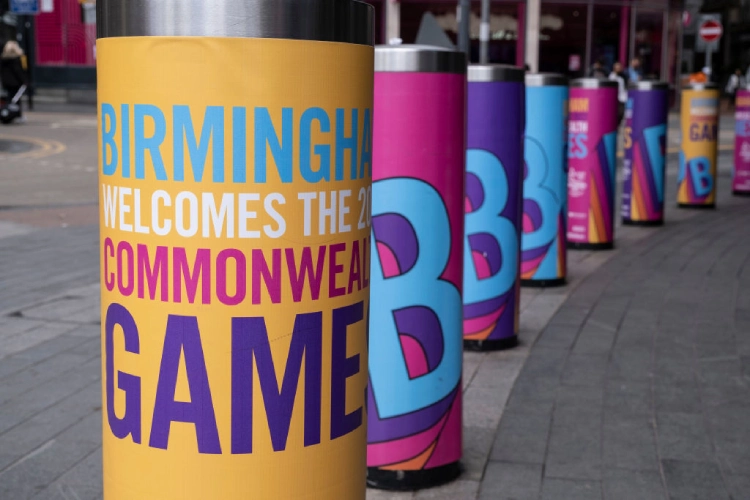
This is the third time the UK has hosted the games in the past two decades: in 2014 the games were held in Glasgow, and in 2002 in Manchester (London hosted the second-ever games in 1934). The Birmingham Commonwealth Games are expected to cost almost £778m, £150m more than was spent on the Glasgow games.

Part of this price growth is down to inflation, as well as the fact that the Commonwealth Games has grown considerably in the past two decades. Hosting 5,054 athletes across 283 events, the Birmingham Commonwealth Games will be 31% larger than the Manchester Games 20 years ago, despite the fact that the number of sports and events has hardly changed.
This increase in athletes led to a large increase in costs, requiring expanded accommodation, venue catering and other services. Meanwhile, there have also been significant changes in security requirements over the past two decades that have led to inflations in staffing and logistics costs.
And of course, there have been increasing expectations across the Games too, with hosts aiming to make the venues, arena and the opening and closing ceremonies more spectacular than the last.
The majority of the budget for the Birmingham Commonwealth Games is being paid for by the national government. In comparison, Manchester spent £330m in 2002, the equivalent of just under £500m now, while Glasgow spent £537.5m, which equates to around £600m today.
The cost of the Commonwealth Games over the years
Capital expenditure, on venues and accommodation, varies hugely from event to event. The Birmingham Games has opted to house athletes at multiple existing sites, rather than a single athletes village in the Perry Barr area as was initially planned, due to the impact of the pandemic on construction. However, the investment into Perry Barr, aiming to build new homes and regenerate the neighbourhood, will still go ahead.
The main site of the sporting events will be the city’s Alexander Stadium, which has undergone £72m worth of redevelopment. This isn’t unusual; in fact, at the Manchester Commonwealth Games in 2002, £111m was spent on the construction of the City of Manchester Stadium (also known as Etihad Stadium), which is now the home ground of Manchester City football club.
[Read more: How the Commonwealth Games helped turn Australia’s Gold Coast from resort town to major city]
The 2018 Gold Coast Commonwealth Games saw a huge capital expenditure budget of almost A$600m (just under £300m when not adjusted for inflation), which included £122m for the athletes' village, and £50m for the Carrara Sports and Leisure centre.
In comparison, Glasgow’s entire capital expenditure came to just £70m, as it had invested in a number of new venues prior to being awarded the right to host the games.
The role of governments in paying for the games
Increasingly, the national government is making a much larger contribution to the budget for the Commonwealth Games. In 2002, the UK government and public body Sport England contributed £183m, 55% of the Games-related expenditure, while the rest was paid for by Manchester City Council, and revenues raised.
In 2014, the Scottish government paid for 62% of the cost of the Glasgow Commonwealth Games. In 2022, the UK government is expected to be contributing almost £600m, three-quarters of the Games.
The Commonwealth Games does provide an opportunity for the city to recoup costs through tickets, sponsorship, merchandising, broadcast and licensing, but this proportion has decreased over time. In 2002, the Manchester Games raised £73.2m in revenue – equivalent to almost half their Games-related operating expenditure. Although Glasgow raised more, the £118m only accounted for a quarter of the operating spend.






